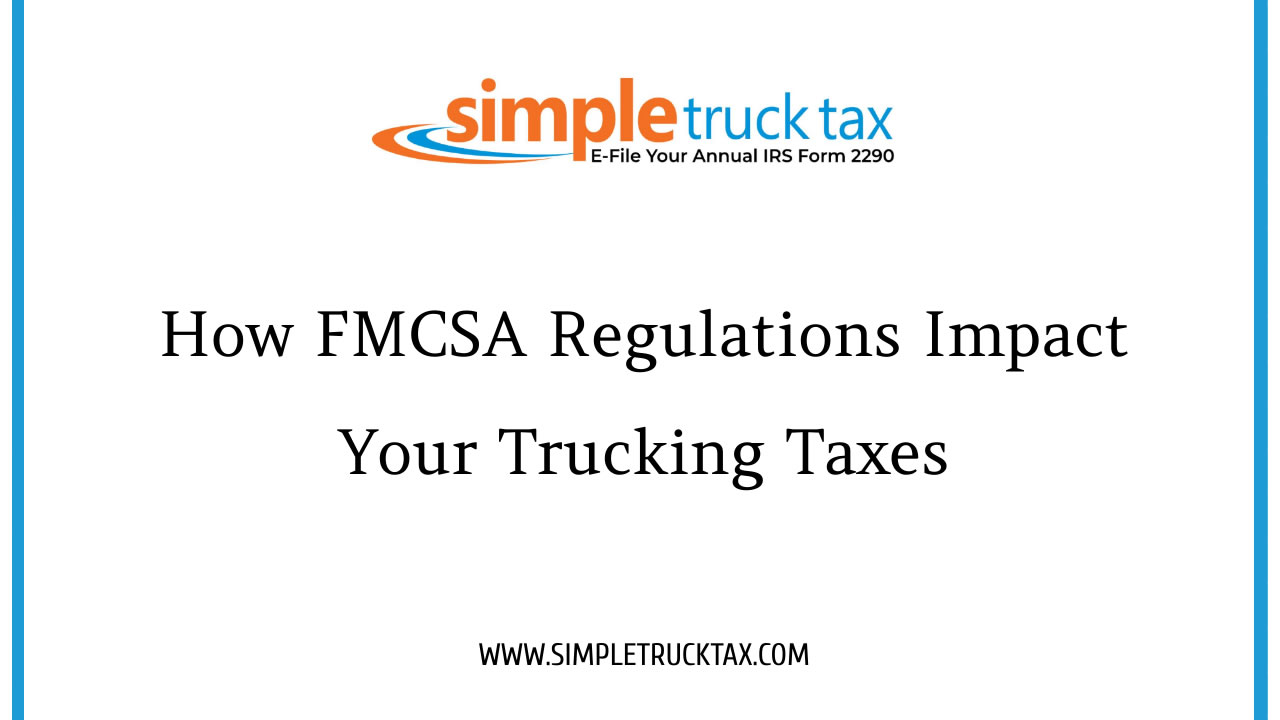12-20-2024
How FMCSA Regulations Impact Your Trucking Taxes
The Influence of FMCSA on the taxation of your Trucking business
The Federal Motor Carrier Safety Administration (FMCSA) is important because it makes the trucking industry safe all over the country. They also put rules most of which are truck hours of operations, safety of the drivers and the trucks themselves. FMCSA regulations are also of great significance when it comes to taxation of your trucking business. Making sense out of this relationship is important for compliance purposes and efficiency in business management.
Regulatory Procedures Have Effect on Reporting Fuel Taxes
Your fuel consumption and reporting is susceptible to FMCSA’s mandate regarding route restrictions, vehicle weights, and hours of service. For example the International fuel Tax Agreement (IFTA) requires you to keep track of the number of miles traveled within all the states. Certain FMCSA regulations necessitate that a truck takes certain routes or directs them away from certain areas thereby altering the amount of fuel tax that the truck is expected to pay. Making sure that your ELD is well calibrated helps you in making sure that your IFTA mileage records are precise.
Impact on Heavy Vehicle Use Tax (HVUT)
The vehicles which are under the purview of the FMCSA are subjected into categories depending on weight and purpose. All trucks which have a weight of fifty five thousand and more pounds are bound to HVUT and FMCSA weight check compliance can be used to scrutinize any inconsistencies.
By adhering to the FMCSA regulations on the weight of the vehicle, the tax returns are filed in a precise manner with no chance of being sanctioned for the not fully declared use of the vehicle.
Cost and Depreciation of Fleet Vehicles
The maintenance of the fleet is to be done regularly as per the requirements by the FMCSA, so that safety of the vehicles is ensured. This raises the operational expenses, but it also impacts your tax affairs. Repair and maintenance and upgrading expenses may be deductible and that reduces the amount of income that is tax liable. In addition to that the fuel saving measures such as the recommendation of new and younger vehicles by the FMCSA regulations may allow deduction for depreciation on the vehicles in accordance to Section 179 of the IRS Code.
Employee Requirements and Driver Hours Payroll Taxes
Driver schedules in relation to their payment and the payroll management are also determined by the hours of service regulations which are supervised by the FMCSA. Making sure that the drivers adhere to particular zones is not only for compliance purposes, but also for payroll taxation. Now consider a case, for instance, overtime combined with adjusting for additional employees in the overtime scale so as to meet the service requirements, this can be in a way modify the obligations of employment taxes. You may wish to note that maintaining records and employing the appropriate software will assist you to report these taxes efficiently.
Tax Implications of Penalties Due to Non-Compliance
It is important to state here that any penalties and fines imposed on the company by the FMCSA regulations are not tax deductible expenses.
If a worker does not take care of safety standards, documents of operations or adherence to the work framework then that may have some negative financial outcomes. Apart from the standard penalties for such breach compliance increases chances that the tax authorities will turn their focus on your records which might end up into an audit or further tax liabilities. Using compliance training and technology can help to avoid these types of mistakes.
If I remain compliant and stick to the FMCSA regulations, it will not only shield me from operating fines, but help manage the payment of all my taxes. Workers and business owners must understand that using FMCSA regulations is not an option, but a necessity because the repercussions of not complying could be quite large. Education of workers and business owners on the relationship of FMCSA requirements and responsibilities on taxes can another opportunity for driving growth and success for the trucking business.
Note: For more information, visit IRS website


